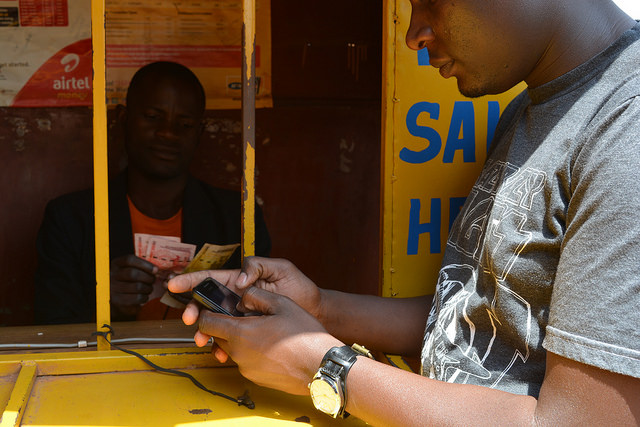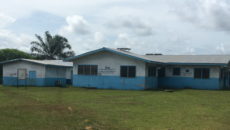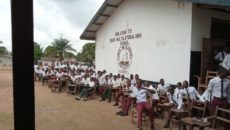“It was raining today,†Vice Principal Adama B. Somi in Grand Cape Mount said. “But when some of us heard about the mobile money, we came because we know it is very important.â€
Somi spoke to our team in a school auditorium in Grand Cape Mount, where the Civil Service Agency and the Ministry of Education had gathered to teach education workers about mobile salary payments, a new way for education workers to receive their pay.
“We make the long journey to Robertsport for our salaries,†Somi told us. “During the rainy season, the road gets bad, and the driver charges more for transportation. I have been going through this difficulty for three to five years now.â€
Education and health workers are key to a strong and developed Liberia. From ambulance drivers and midwives to teachers and janitors, Liberia’s future heavily relies on these community members. The minds of Liberia’s future leaders are fostered by education workers, and healthcare workers ensure healthy communities.
But many health and education workers struggle to receive their salary, abandoning their patients and students for days and even weeks just to pick up their paycheck. Civil servants have told us about the difficult road to the bank, the long line and the frequent bank outages. Government workers rely on their salaries to feed their families, but they are placed into a difficult position when they are forced to leave patients and students behind to pick up their pay.
In response to these challenges, the Government of Liberia has partnered with our team, the Mobile Solutions Technical Assistance and Research project, also known as mSTAR. Funded by USAID, the project facilitates an easier way for civil servants to receive their salaries.
Through mobile salary payments, employees get their monthly payments transferred to them on their phones, greatly reducing the need for difficult, expensive trips to the bank. They receive an SMS when the payment is deposited, and then they may proceed to any mobile money agent in their communities to cash it out. The mobile money account is the same as their phone number, and users have a secret PIN code to access it. If the phone is ever lost or stolen, the money is maintained under the registered person’s name until the purchase of a new SIM and the balance is transferred.
Since the project’s inception in 2015, mSTAR and the government have enrolled over 2,000 employees from the Ministry of Education and over 800 employees from the Ministry of Health in mobile money salary payments. This payment option is now available in Bomi, Bong, Gbarpolu, Grand Cape Mount, Grand Gedeh, Lofa, Nimba, Margibi, Maryland, and Montserrado. Next year, it will be available in all 15 counties.
To date, civil servants who have enrolled in mobile money report saving an average of L$1,644 (US$13.15) per month by collecting their salaries from a mobile money agent rather than traveling to the bank. In addition, the average time required to collect salaries decreased from an average of 35 hours to 2 hours when using a mobile money agent rather than the bank. This means employees spend less time away from work and more time in their schools and health centers.
On Thursday, November 30, mSTAR hosted a Stakeholders Sustainability Workshop at the Royal Grand Hotel in Sinkor to reaffirm the government’s commitment to the implementation of mobile money salary payments for civil servants.
Stakeholders from the Civil Service Agency, the Ministry of Education, the Ministry of Health, and the Ministry of Finance and Development Planning were all active participants. The Central Bank of Liberia, Liberia Board for Nursing and Midwifery, Liberia Telecommunications Authority, and USAID were all observers at the event.
Together, they mapped a clear path forward to sustainably give more civil servants access to the program. It was deeply heartening to see government workers from so many ministries come together to solve this challenge. The CSA, MOE, and MOH will continue to conduct more enrollment events, opening this payment option to thousands of more civil servants.
“I believe our prayers have been answered now that we have this mobile money program,†Vice Principal Somi told us. While mobile salary payments may not solve all salary issues, we know that civil servants are happier with this service than they were before. We have great hope, especially after the Sustainability Meeting, that the government will continue to improve this service and make it an option for thousands of more hardworking and dedicated civil servants.
Featured photo by Fiona Graham/WorldRemit



